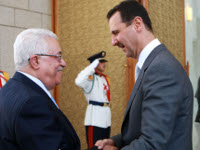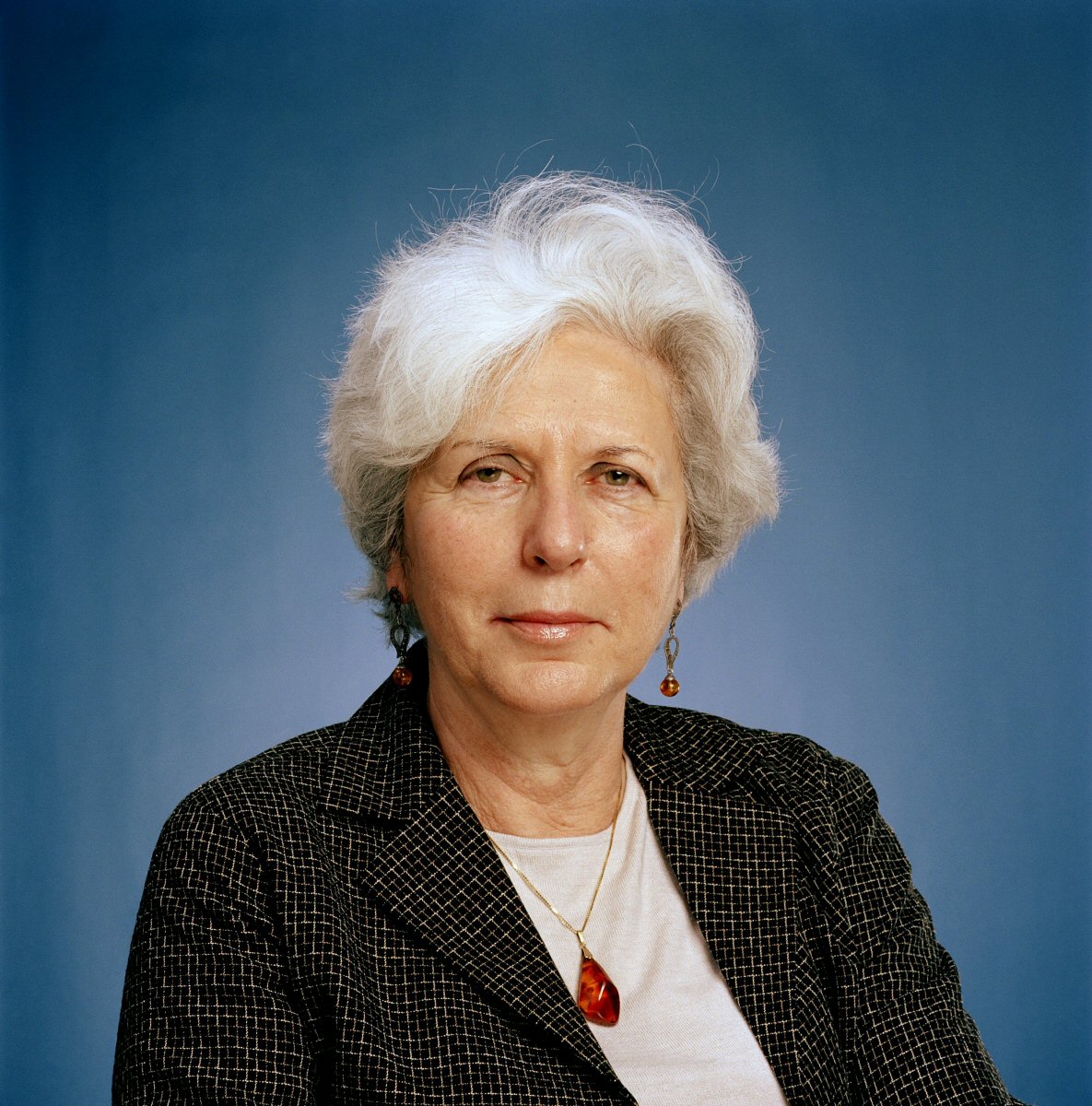{
"authors": [
"Marina Ottaway",
"Hussein Ibish",
"Robert Danin",
"Ziad Asali",
"Radwan Ziadeh"
],
"type": "event",
"centerAffiliationAll": "",
"centers": [
"Carnegie Endowment for International Peace",
"Malcolm H. Kerr Carnegie Middle East Center"
],
"collections": [
"Arab Awakening"
],
"englishNewsletterAll": "",
"nonEnglishNewsletterAll": "",
"primaryCenter": "Carnegie Endowment for International Peace",
"programAffiliation": "",
"programs": [
"Middle East"
],
"projects": [],
"regions": [
"Middle East",
"Palestine",
"Syria",
"Levant"
],
"topics": [
"Political Reform",
"Foreign Policy"
]
}
Owning a Piece of Palestine: Syria’s Assad Regime and the Palestinian Question
Wed, July 27th, 2011
Washington, D.C.
IMGXYZ3143IMGZYXSince coming to power in 1970, the Syrian regime has had an uneasy relationship with the Palestinians. Former president Hafez al-Assad and his son, President Bashar al-Assad, have consistently claimed to champion the Palestinian cause, but in practice have sometimes conflicted with Palestinian leaders and attempted to intervene in Palestinian politics.
Syria-Palestinian Relationship
- Asserting control: Syrian policy since Hafez al-Assad has been based around undermining and confronting independent Palestinian national leadership and asserting control over the Palestinian cause and movement, Ibish argued.
- A subordinate position: Syria’s main ideological position was that the Palestinian cause was subordinate to a broader Arab revolution, Ibish added.
- Factors influencing Syrian policy: Ziadeh argued that Syrian policy toward the Palestinians depends upon three factors:
- Division: Syrian leaders act to pit Palestinian organizations against each other, since no single faction can represent the Palestinians without a state.
- A proxy: Syria uses its influence with some Palestinian players to achieve its own foreign policy goals, such as when Hafez al-Assad used his proxies in South Lebanon to make trouble for Israel during Israeli-Syrian negotiations in the 1990s.
- A point of pride: Syrian leaders argue that Palestinian refugees are treated better in Syria than in other Arab countries.
Tensions Between Syria and the Palestinian Leadership
- Support Fatah: Syria supported the Fatah faction within the PLO during the 1970s to undermine other factions in the PLO supported by Egypt.
- Lebanese Civil War: During the Lebanese civil war in the late 1970s and early 1980s, the Syrian leadership consistently supported anti-PLO elements in Palestinian politics.
- Supporting Hamas: The leadership has also historically provided support for Hamas, including allowing the organization to move its politburo to Damascus.
- Breaking with Hamas: Recently, Syria switched its position in support of Hamas as a result of the uprising, suggesting that it would recognize a Palestinian state based upon 1967 borders.
U.S.-Syrian Relationship in Context of Palestinians
- The Cold War: Following the Six Day War, Syria broke off relations with the United States. During this time, Syria was allied with the Soviet Union. Its support for the Palestinians during the Cold War was sporadic at best; during the Lebanese civil war, Syria intervened to side with the Phalangists, whose militias were fighting the Palestinians.
- Post-Soviet Union: After the collapse of the Soviet Union, Syria cooperated with the United States on the Gulf War, which pitted it against the Palestinian leadership, who supported Saddam Hussein.
- Peace Process: During the end of the twentieth century and the start of the twenty-first, beginning with the Madrid conference of 1991 through the George W. Bush administration’s actions following the September 11 attacks, Palestine and the peace process played a significant role in shaping U.S.-Syrian relations.
- Obama: Under President Obama, the United States has attempted to reengage with Syria in an effort to separate it from Iran, culminating with the arrival of Ambassador Robert Ford in Damascus.
The Future for Syrian-Palestinian Relations
- Hamas: Hamas has lost much of its support in Damascus as a result of Hamas’ refusal to take sides on the Syrian uprising,, Danin said. He explained that the Syrian leadership was increasingly supporting Fatah-Hamas unity talks.
- Israel: Ziadeh noted that the Syrian opposition had endorsed the Arab Peace Initiative in 2004, which offered full peace with Israel in return for withdrawal from the Golan Heights and the formation of an independent Palestinian state.
- Hezbollah: Syrians participating in the uprising are burning pictures of Hezbollah’s Secretary General Hasan Nasrallah as well as the party’s flags, Ziadeh said. Furthermore, there are rumors that Hezbollah members are assisting the Syrian government’s crackdown on protesters.
Carnegie does not take institutional positions on public policy issues; the views represented herein are those of the author(s) and do not necessarily reflect the views of Carnegie, its staff, or its trustees.
Event Speakers
Before joining the Endowment, Ottaway carried out research in Africa and in the Middle East for many years and taught at the University of Addis Ababa, the University of Zambia, the American University in Cairo, and the University of the Witwatersrand in South Africa.
Hussein Ibish

Hussein Ibish is a senior resident scholar at the Arab Gulf States Institute in Washington. He is a weekly columnist for The National (UAE), former columnist for Bloomberg, regular contributor to The New York Times and The Daily Beast, and frequent contributor to many other U.S. and Middle Eastern publications. He has made thousands of radio and television appearances and was the Washington, DC correspondent for the Daily Star (Beirut). Many of Ibish’s articles are archived on his Ibish blog website.
Robert Danin
Ziad Asali
Radwan Ziadeh
